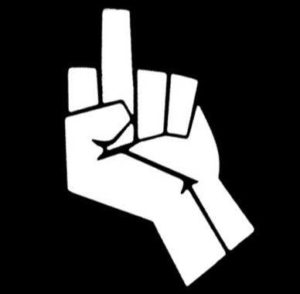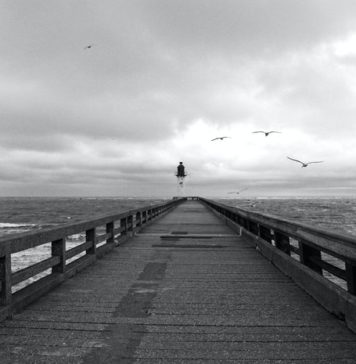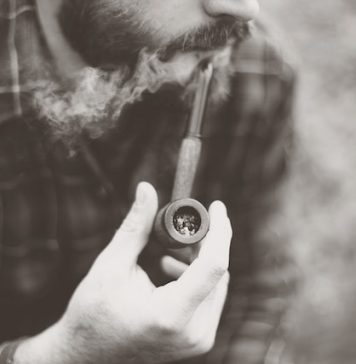I joined the army on my 20th birthday.
I desperately wanted a change in scenery. This whole yeshiva thing wasn’t working out. I hoped to take a break from it and come back with new energy.
I wanted to experience the broader Israel. Meet new people, go to new parts of the country. I’d been to Tel Aviv less than five times in my life.
I wanted a sense of comradery. After years of isolation, always feeling different and alienated, I wanted the sense of brothers in arms that the army is so famous for.
I wanted to learn discipline. I felt I lacked the willpower to do what I knew was right in my life. I was tired of waking up late and not doing what I had resolved to do. The army teaches you disciple, I was told.
I wanted to make a choice that was big, and completely independent. That’s why I didn’t tell my parents – I knew they’d be supportive, but it was a choice I needed to make on my own.
So I joined, and only after I did, was I told that my terrible eyesight meant I wouldn’t be in combat (I’ve since had LASIK surgery).
I appealed, but it didn’t help. I did a 02 non-combat basic training where I wasted my time for a month, shot a rifle a couple times, and cleaned the base’s kitchen for Passover. I was surrounded by asthmatics with flat feet and bad knees who didn’t give a fuck. I was in perfect health, had run a half marathon a few days before, and took the “training” as seriously as if I was a navy seal.
Since I was doing a shortened service and then going back to yeshiva, I had very few non-combat options, and although I requested to be an instructor in the engineering corps, I was assigned to be a military case-worker in the least appealing unit I could have possible asked for – the army’s once all Charedi unit. I one of 7 seven males with that role in the entire Israeli army.
The ultimate irony of this role is that nothing I joined the army for was actually fulfilled. I stayed on the same base for my entire service, surrounded by exactly the type of charedi ex-yeshiva students I most despised. The army didn’t know how to deal with men with my position, so I lived in isolation, fell between the cracks, and experienced neither comradery nor discipline.
I remember shuffling to the showers in my crocs and t-shirt at 10 am past the entire unit as it was assembled in strict attention while the national anthem played. I once went AWOL for three days because of a tooth ache and no one noticed I was gone. Once again, I belonged nowhere.
For my position, I got a few weeks of training and then was responsible for pushing an insane amount of paperwork around to get soldiers in need the two solutions that solve all problems – money and time off. The sign I created and hung up in my “office” (read: room with a desk and a plastic chair) summed it up well: we provided “Financial solutions to emotional problems.”
I traveled all over the country visiting the homes of soldiers in need. I got to ask parents about their shitty relationships with their son or spouse. About the amount of debt they were in. About their medical disorders. A parent once showed me his Viagra prescriptions. Another time I had to ask a mother just how abusive her husband was being towards her.
I’d come back to base and file a report, which was then forwarded on to my officer, which was then sent to her officer, who decided if the solider was worthy of said time off and vacation that they had applied for.
It was intense work, and frustrating. You couldn’t control the results – as is typical in the army, the people who needed the most help were the least likely to get it – certainly not in a timely manner. I cared deeply about my responsibilities and my soldiers, and took the stress and circumstances very personally. I had soldiers who stayed on base because they had nowhere to go on their time off, and there was nothing I could do about it.
As was usual for me, I was extremely effective and extremely resentful. I was named “top trainee” (from my group of seven) during my training period, visited more houses than anyone else, and developed a reputation for scathing sarcasm and emotional outbursts. I was told on my last day of service by my senior officer that she’d never met anyone more professional – or more bitter.
During my entire service, I was devoutly religious. On my few weekends on base, I brought my suit and hat with me. I was awkward and uncomfortable around my female colleagues, and never touched them once. I never swore. I tried studying every day while on base, or at least wanted to / felt guilty when I didn’t. I had a chavrusa when I got back home on weekends.
And I ate only badatz, which meant I starved during most of my service, since it was shmitta year and I didn’t eat heter mechira or rabbanut meat.
My army experience was formative, but very different than I had hoped for. In retrospect, I learned you cannot run away from your problems or expect your circumstances to fix you. Had I more emotional resources and maturity I would have handled the entire experience in a much more effective way, but that came years later with time, experience, and therapy.
I had once close friend, Nirel Ayash. We became incredibly close, or at least, I felt close to him, as we shared the isolation of our role together. We had our own inside jokes, our own shared grievances.
A fellow social worker, he was National Religious, not Charedi. He came from a Yeshiva called Mitzpe Yericho and I noticed that everyone I met from that place seemed to be extra nice and particularly refined. I decided to attend it once I finished my service.
Full chapter list (Available in eBook Form)
- Kindergarten
- Cheder
- Mishna
- Good and Evil
- Gemara
- Yeshiva Gedola
- Ramat Shlomo
- Beitar
- More of That
- The IDF
- Mitzpeh
- Darkness
- Independence
- Shitting on the Parade
- Light
- Detox
- Spreading Wings













